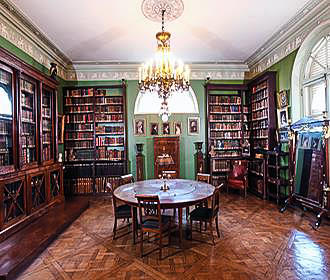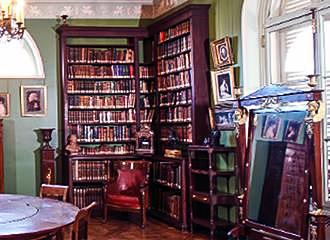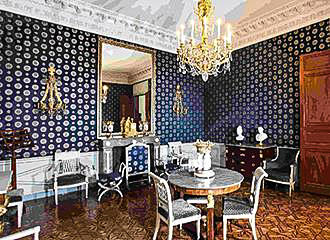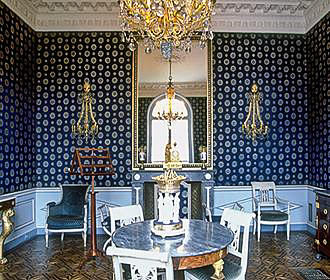Bibliotheque Paul-Marmottan library and museum in Paris
Dedicated to the First Empire and Napoleonic history this library turned museum was first built in the late 19th century by Paul Marmottan and is now run by the Marmottan Foundation, that also runs the Musee Marmottan Monet museum in Paris.
A bit of history
Jules Marmottan was a great collector of different works from the 15th and 16th centuries, however, his son Paul Marmottan was a historian and fascinated with the First Empire and the Napoleonic era.
Paul Marmottan travelled extensively throughout Europe visiting the sites of Napoleonic campaigns and the residences of Napoleon and on his travels accumulated a vast amount of different works of art and documents, along with a very rare collections of newspapers, etc.
He also produced a number of publications on the subject such as a biography on Elisa Bonaparte and another of the study of arts in Tuscany during the reign of Napoleon, and at the start of the 1900s Paul purchased a townhouse in the Bois de Boulogne area of Paris for his extensive library.
This was to be a place that was transformed into a neoclassical Italian style that he loved, so that it would be a relaxing and inviting private residence where he could work and invite readers and those who had a similar passion.
When Paul Marmottan died in 1932 he bequeathed the town house Bibliotheque Paul-Marmottan and his town house in Paris to the Institut de France and the Academy of Fine Arts, so that these could be turned into museums in Paris that everyone could then discover and enjoy.
So, the Musee Marmottan Monet, which now holds the largest collection of Claude Monet and Impressionist paintings in the world, along with the impressive Bibliotheque Paul-Marmottan library were first opened in 1934.
About Bibliotheque Paul-Marmottan Museum
The buildings of the Bibliotheque Paul-Marmottan were either built or reconstructed from 1900 through to around 1930, where Paul Marmottan created a neo-First Empire style, which is clearly seen with the pine from Italy.
You can discover the blue covered walls from the Palace of Caserta near Naples along with the original furniture and a collection of several thousand prints, where he built a gallery just purely to hold these, and this building with its unique styling is now classed as one of the historical monuments in Paris.
The oldest parts of this museum in Paris have been fully restored, however, a temporary exhibition hall, a new reading room and an auditorium have been added to provide an even greater experience, for everyone to enjoy.
This library turned museum is a truly original cultural centre that welcomes researchers, students, historians, enthusiasts and tourists that would like to discover more about the Napoleonic period of history, or just wish to discover the atmosphere of the building along with its neoclassical Italian style garden.
The auditorium really enhances what the whole place is about and with its great acoustics, there are concerts, lectures and workshops that are held throughout the year, not forgetting the individual or group tours, which will satisfy anyone from the truly passionate historian, through to the average tourist that is on holiday in Paris.
Access to Bibliotheque Paul-Marmottan
This particular tourist attraction in Paris is located in a residential area along the Bois de Boulogne on the outskirts of Paris, tours of the permanent collection are only available to view by prior appointment and the cost as of 2013 is €8, but you would need to telephone to arrange this on +33 (0) 1 55 18 57 65.
The Reading Room is open on a Wednesday to Friday from 2pm through to 6pm and by appointment, yet we would like to point out that this library museum is closed on National French holidays, from 24th December through to 2nd January and for the month of August.
If you wished to attended a conference, then these are a cost of €5 as of 2013 and concerts are a cost of €9.50 and all are conducted with specialists in the field of the Napoleonic era plus there are educational workshops organised as well.



